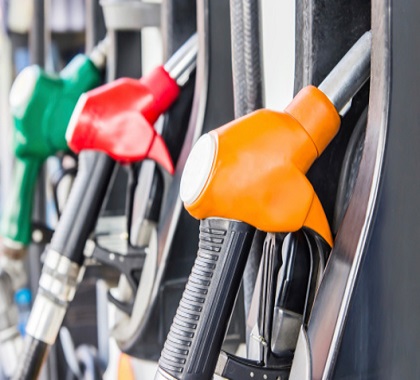Missouri lawmakers are considering common sense stipulations on any future fuel tax increases with House Bill 1906. If passed, the bill would bar any fuel tax increases from being implemented without a review by the Oversight Division of the Joint Committee on Legislative Research.
This legislation is a step in the right direction towards fiscal responsibility and transparency when it comes to changes in fuel taxes. HB 1906 stands in contrast to other bills under consideration in state legislatures that aim to flippantly increase fuel taxes. Like all taxes, the burden of fuel taxes are ultimately borne by consumers. Moreover, this comes at a time when the national average for a gallon of gas is at its highest since 2014.
Historically, gasoline taxes have been inherently unreliable sources of funding when it comes to state roads, maintenance, and other transportation infrastructure projects. This is partly attributable to the rise of more fuel-efficient vehicles. According to The Electric Vehicle World Sales Database, sales of electric vehicles have been consistently increasing since 2011. Furthermore, if states begin to follow in the footsteps of California Gov. Gavin Newsom, we are likely to see a phasing-out of the sale of gasoline-powered cars in the future.
In 2015, Daniel Vock, writing for Governing, examined state gasoline tax data reported to the U.S. Census Bureau and discovered two-thirds of state-imposed fuel taxes failed to keep state transportation budgets afloat amid inflation. Moreover, the COVID-19pandemic has added an unforeseen layer to the complexities and shortcomings of using gasoline taxes to subsidize state-run transportation programs and projects.
The stark decline in driving that accompanied lockdown orders drastically reduced gasoline tax revenue for state and local governments, highlighting the fact that gas taxes are no longer viable sources for state infrastructure and transportation funding. According to the American Road and Transportation Builders Association, more than $8.5 billion in planned projects across 14 states were canceled or delayed because of budgetary shortcomings due to the COVID-19 pandemic.
Additionally, fuel taxes are highly regressive and carry with them a myriad of economic consequences, including creating new direct-to-consumer costs. As a function of corporate finance, large-scale corporations and transit entities will see their usual budget allocation for fuel fall short with increasing prices, thus higher prices on goods and services will be the result.
As is the case with many top-down taxes, an increase in gasoline taxes will hit small business owners harder at a time when small businesses cannot afford more hurdles. According to Wallethub, 87 percent of small business owners are struggling due to the ongoing pandemic.
In a Maryland Public Policy Institute study, Wendell Cox and Ronald Utt argue that gas taxes have a significantly greater negative effect on the budget of lower- and middle-income families than they do for wealthier households. Gasoline consumption is inelastic for most Americans, meaning those who are already marginally able to pay their bills face an increased financial burden due to an increase in fuel taxes.
Moreover, the revenue from fuel taxes is not always allocated to transportation upgrades. The latest example of this took place in Pennsylvania, where gas tax revenue intended to fund bridge repairs went to the state police instead. The Keystone State saw $802 million in gas tax revenue allocated toward police funding. While police funding is paramount to a safe society, there is no way for constituents to be sure that gas tax funding goes towards the betterment of state transportation infrastructure.
Furthermore, as more electric and fuel-efficient vehicles enter the market, policymakers must consider more modern and effective ways to fund road construction and other state transportation infrastructure projects. Such is why many states have turned to privatizing roads and establishing toll systems as ways to improve their roadways.
Amid a time when U.S. inflation has hit a 40-year high, U.S. gasoline prices have climbed about 50 percent over the past year, according to The Wall Street Journal. There could not be a more inconvenient time to impose any changes on fuel taxes to Missouri consumers who are currently paying an average of $2.956 for regular-grade gasoline. In comparison, the average price for regular one year ago was $1.841, according to AAA Gas Prices.
Overall, as lawmakers in Missouri consider HB 1906, they should see the evident benefit to adding another check in the system before implementing any knee-jerk tax increases. After all, if lawmakers can rely on economic data and avoid ultimately unreliable gas tax increases all Missouri constituents would reap the rewards.
The following articles provide more information about how motor-fuel taxes are applied and their subsequent effects on the economy.
Raising Gas Taxes Won’t Fix Our Bridges
https://heartland.org/publications-resources/publications/raising-gas-taxes–wont-fix-our-bridges
In this paper, Adrian Moore of the Reason Foundation argues increasing fuel taxes should not be the only response to state transportation funding problems. Moore wrote, “First we must examine how we spend transportation dollars now. Then we maximize the value out of those dollars. Finally, the last step is to address the need for additional revenue.”
Paying at the Pump: Gasoline Taxes in America
http://taxfoundation.org/article/paying-pump-gasoline-taxes-america
In this paper from the Tax Foundation, Jonathan Williams argues gas taxes can be an effective means of funding transportation improvements. In many cases, however, governments exploit the taxes for political reasons, spending them on projects unrelated to roads and other transportation projects.
Alternatives to the Motor Fuel Tax
https://heartland.org/publications-resources/publications/alternatives-to-the-motor-fuel-tax
This report, prepared by the Center for Urban Studies at Portland State University and submitted to the Oregon Department of Transportation, evaluates potential alternatives to motor-fuel taxes. The report also identifies the economic and technological problems that must be addressed when designing alternative revenue sources.
State Motor Fuel Taxes
https://www.api.org/oil-and-natural-gas/consumer-information/motor-fuel-taxes/gasoline-tax
The American Petroleum Institute documents each state’s current motor-fuel taxes (both gasoline and diesel).
Policy Tip Sheet: Gas Taxes are not the Long-Term Solution to Funding Transportation
In this Policy Tip Sheet, Matthew Glans examines gasoline taxes, how they have become less effective over time, and why states can no longer rely on them to fund state transportation projects.
_____
Nothing in this Research & Commentary is intended to influence the passage of legislation, and it does not necessarily represent the views of The Heartland Institute. For further information on this and other topics, visit the Budget & Tax News website, The Heartland Institute’s website, our Consumer Freedom Lounge, and PolicyBot, Heartland’s free online research database.
The Heartland Institute can send an expert to your state to testify or brief your caucus; host an event in your state, or send you further information on a topic. Please don’t hesitate to contact us if we can be of assistance! If you have any questions or comments, contact Heartland’s government relations department, at [email protected] or 312/377-4000.




